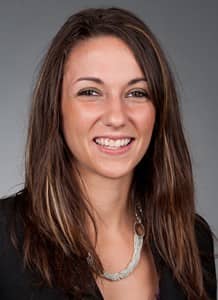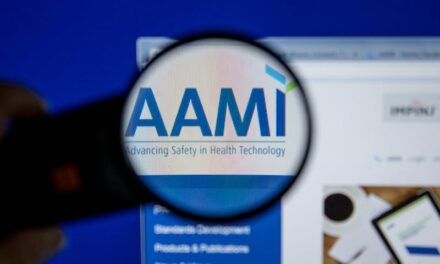On April 23, Danielle McGeary joined AAMI as the first vice president of healthcare technology management. Below, McGeary—who most recently served as the district manager for Aramark’s northeastern region—speaks with 24×7 Magazine exclusively about her plans for her new role and what she believes are the most pressing issues currently affecting HTM.
24×7 Magazine: Congrats on your new position with AAMI! What are some key goals you would like to accomplish in your role?
Danielle McGeary: There are a number of things that I would like to accomplish: Right now, my top two priorities are finding new and creative ways to increase the number of people entering the HTM field and spreading a greater awareness of HTM, in general. After all, it is impossible for someone to choose to pursue a career in a field that they have never heard of. Given that a large majority of HTM professionals will be retiring in the next 10 to 15 years, the HTM field is going to be faced with a real challenge that we must be proactive about solving.
24×7: How did you get your start in the HTM field?
McGeary: I first heard about HTM when I was an undergraduate engineering student at the University of Connecticut. Frank Painter is a huge advocate of the field, and he gave a presentation about HTM and the clinical engineering graduate program. After hearing his presentation, there was no question what I wanted to do. I did my internship at Hartford Hospital and was fortunate to be able to work under the direction of Amato DeRosa and Raymond Renouf. They gave me real clinical engineering work and never treated me like an intern—they were the best mentors I could have ever asked for.
24×7: You are highly educated, with a master’s degree in biomedical engineering. So, how do you feel about the current state of education in the HTM field?
McGeary: My concern about the current state of education in the HTM field is that there are not many programs, at any education level, specifically focused on it. Many of the associate degree programs have been closing due to low enrollment. However, I truly believe that most successful professionals in this field are the ones who are willing to learn at all stages of their careers and are passionate about improving healthcare.
Throughout my career, I have worked with many HTM professionals who have not had a college degree, and they are phenomenal at what they do. Education can come in many different forms—not just from a college degree. What we really need are more people who are willing to invest in new HTM professionals and train and mentor them on the job. This is what would be a critical catalyst in our field.
24×7: In your opinion, what are some of the key issues affecting the HTM sector and how will you work to combat them in your new role with AAMI?
McGeary: The key issues affecting our field right now are the pipeline of new professionals entering the HTM field, the retention of HTM professionals currently in the field, the “right to repair,” and cybersecurity. There are many task forces and committees within AAMI that I plan to leverage to help find and implement solutions to these pressing issues.
24×7: The HTM field has traditionally been viewed as male-dominated. What advice do you have for other women who are considering a career in HTM?
McGeary: My advice to anyone entering this field is to remember that we are united through our differences. Diversity leads to different ways of thinking and, thus, leads to more creative solutions and better outcomes. I, personally, have never viewed myself as a woman in a “male-dominated field.” I just have a passion for what I do and, through the work I have done, I’ve earned the respect of my peers.





Sincere congratulations Danielle, on being selected by AAMI to spearhead their expanding efforts to further the influence of all of us professionals in the HTM field. It is a considerable responsibility but we all look forward to supporting you in whatever way we can.